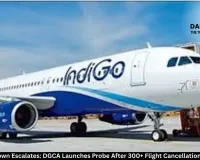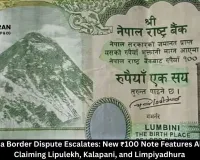Taliban-Pakistan Border Clashes Ignite: A Deadly Echo of Decades-Old Betrayal
Digital Desk

xplosions rattle the rugged Durand Line as Pakistan and Afghanistan's Taliban regime trade deadly blows in what could be the fiercest cross-border firefight in years. Over the weekend, Pakistani airstrikes hammered Taliban positions in Kabul, Khost, and Paktika, targeting hideouts of the Tehrik-e-Taliban Pakistan (TTP)—the very militants Islamabad blames for a surge in attacks on its soil.
In retaliation, Taliban forces unleashed drone strikes and artillery on Pakistani outposts, claiming to have killed 58 soldiers while Islamabad reports over 200 enemy fighters down. Borders slammed shut, villages evacuated, and flight paths restricted the air thick with fear of all-out war. But this isn't just another skirmish; it's a powder keg fueled by history's bitter twists, where old allies turned foes overnight.
Flash back to the 1980s Soviet-Afghan War. Pakistan, backed by the U.S. and Saudi Arabia, funneled arms and training to mujahideen fighters rural "students" or Talibs from Deobandi madrasas who dreamed of an Islamic Emirate under Sharia law, laced with Pashtunwali honor codes. Islamabad saw gold: a friendly Kabul meant "strategic depth" against rival India, blocking New Delhi's sway over the Northern Alliance of Tajiks, Uzbeks, and Hazaras. Ethnic rifts Pashtuns dominating the Taliban clashing with Afghanistan's mosaic of minorities only deepened the chaos, turning the country into a sectarian tinderbox.
Enter Al-Qaeda's Osama bin Laden, nesting in Taliban strongholds with a global jihad twist far edgier than the group's local focus. Post-9/11, America's ultimatum hit: Hand over bin Laden or face invasion. The Taliban's "no" sparked the 2001 U.S. blitz, forcing Pakistan's humiliating pivot. Once nurturers of the movement via Wahhabi-funded seminaries, Islamabad ditched its proxies for Washington dollars, igniting fury among radicalized border tribes. Blowback? The TTP's birth in 2007, a Frankenstein of betrayed mujahideen remnants, now bombing Pakistani cities and schools from Afghan safe havens.
Today's flare-up screams that old wound's infection. TTP attacks have spiked 50% this year, with the group bolstered by Taliban logistics and Al-Qaeda know-how waging a multi-front guerrilla war alongside Baloch separatists. Porous borders in Khyber Pakhtunkhwa and Balochistan let drugs and arms flow freely, fattening militant coffers while starving economies. The Taliban's madrasa boom across the line spreads Deobandi fire, clashing with Pakistan's Saudi-tilted Wahhabism and rejecting ethnic nationalism for pure Islamic unity.
As tanks burn and drones hum witnessed in raw footage of anti-tank missiles shredding Taliban armor regional ripples grow. India watches warily, Iran eyes Hazara allies, and China frets over Belt and Road routes. Pakistan's "new normal" of preemptive strikes signals no more kid gloves, but escalation risks a quagmire echoing Afghanistan's endless wars.
For South Asia's 1.8 billion souls, this Taliban-Pakistan conflict isn't ancient history it's today's ticking bomb. Diplomacy, not drones, might defuse it, but with TTP vowing revenge and Taliban convoys massing, peace feels like a distant prayer. Stay tuned: In this chessboard of faith, ethnicity, and empire, one wrong move could redrawn maps in blood.











